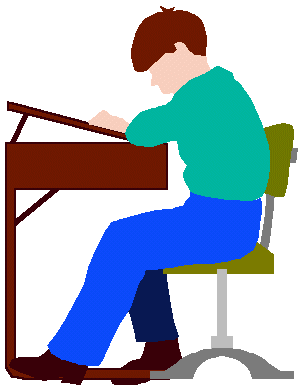By Dr. Kimberly D. Whaley, Ed. D.
 When I first started teaching, I knew that independent reading was important. I knew I wanted to give my students the opportunity to read something on their own that they loved, but I didn’t realize the need to be specific and intentional in this practice. Because of this, I would provide time for “free reading” or “DEAR (Drop Everything and Read) Time” on a regular basis. However, it didn’t always go as planned. From time to time, I would have students flipping through pages of the book (not reading). Some students played in their desks during this time. I even had a student or two fall asleep. As a new teacher, I knew I needed to provide opportunity for more focused reading, but I didn’t know how to make that happen. I was frustrated with myself and my students.
When I first started teaching, I knew that independent reading was important. I knew I wanted to give my students the opportunity to read something on their own that they loved, but I didn’t realize the need to be specific and intentional in this practice. Because of this, I would provide time for “free reading” or “DEAR (Drop Everything and Read) Time” on a regular basis. However, it didn’t always go as planned. From time to time, I would have students flipping through pages of the book (not reading). Some students played in their desks during this time. I even had a student or two fall asleep. As a new teacher, I knew I needed to provide opportunity for more focused reading, but I didn’t know how to make that happen. I was frustrated with myself and my students.
After a great deal of soul searching and reflection, I realized that my students didn’t understand the purpose of this opportunity. I knew they certainly didn’t see the importance and positive outcome of this practice, after all they were elementary students. They only thought of this time as a break from traditional classroom work. I wasn’t seeing the growth I wanted to see. I had to do something.
Suddenly, after reading, thinking, and problem solving, I realized I knew the exact answer to our dilemma. Each student should have a purpose for reading when we had our independent reading time. This, no doubt, meant I had to understand each of my students’ reading needs as well as have a clear understanding of their skills and abilities. With this in mind, each student was given a specific purpose to their reading. When the students were given time to read independently, now they would have a purpose connected to their reading. For some students that purpose might be to find five words that aligned with a specific phonics rule they were working on. For another student, they might complete a plot graphic organizer. Yet another student might find three places where inference was used while another student might find ten examples of figurative language.
What a difference this made for us and our reading growth. Students now had a purpose for their reading. They stayed focused during this time while growing their reading skills with ease. I was able to gather data and assess the students easily. As each student mastered their skill, another purpose would be provided to the student. Students thrived and looked forward to their new tasks. This practice added a new fervor to our independent reading times.
Read Naturally Live also offers this type of differentiation in their online program. Each student has their specific tasks to attend to. In fact, teachers can use the data from Read Naturally Live to determine their students’ purposes during independent reading times. Consider the skills addressed in the student’s Read Naturally Live levels. If the student is in a level that addresses phonics, then the same phonics focus might occur during independent reading. In Read Naturally Live, students have the opportunity to play a game called Wordtastic while waiting on their teacher to assess their progress. To align with this game, students could choose five words during their independent reading and provide an antonym or synonym for that word, depending on the area that needs more practice. Since Read Naturally Live has such a strong focus on vocabulary, the teacher might have the student concentrate on vocabulary where they choose five words they don’t know from their independent reading. The student could then look up the word and use it in a sentence. They might even draw a picture of the word. All of this could be done in their reading journal so they have a great resource for support later.
Read Naturally Live and classroom practices work hand in hand to support students. This is just one way the two connect and make a difference for students. In fact, using the data from Read Naturally Live makes your job easier as the teacher. The information is there for the taking. Take advantage of this and easily outline a plan for your students.
Reading is knowledge! Reading is power!!
 Share your student’s success story—nominate him or her for our Star of the Month award. Win a Barnes & Noble gift card for the student and a Read Naturally gift certificate for your class!
Share your student’s success story—nominate him or her for our Star of the Month award. Win a Barnes & Noble gift card for the student and a Read Naturally gift certificate for your class!
Post a New Comment